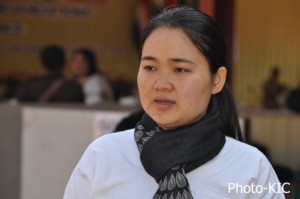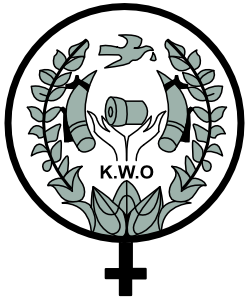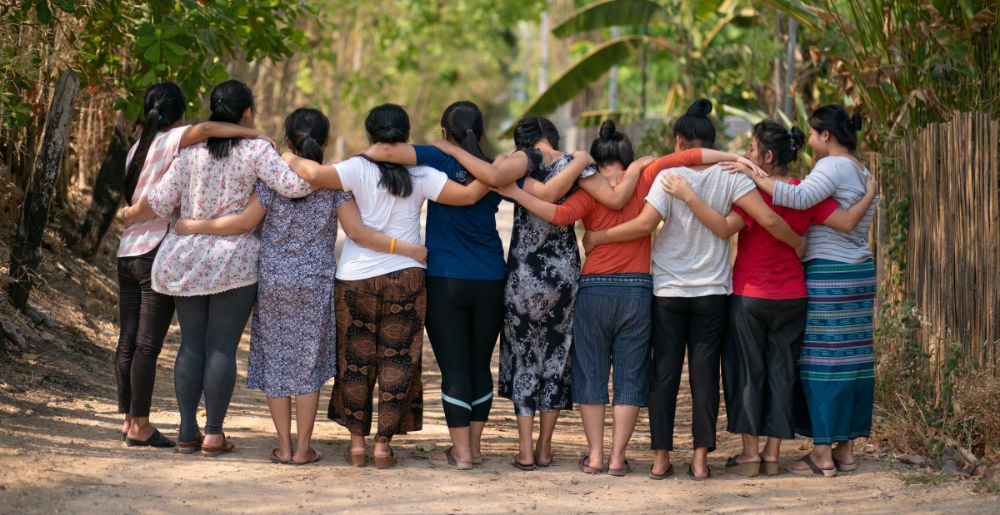
“We are not only ignored, we are being abused and victimized. The peace talks don’t include a significant or meaningful level of women participants on the Burmese side or the ethnic side. We have helped hold our community together over the many years of fighting. We are leaders in the struggle for justice for the Karen people. It is time we had a seat at the table for peace,” the secretary of the KWO, Naw K’nyaw Paw, said.
Naw K’nyaw Paw maintained that an international investigation into rape and sexual abuse perpetrated by the Burma Army was “essential for justice.”
“[The] KWO and all the ethnic women’s groups believe there is a need for an international investigation. Burma cannot conduct its own transparent investigation for many reasons: first they are part of the conflict, they do not have access to all areas where the abuses are taking place, ethnic women and girls who suffer sexual violence will never [have enough] trust to talk to Burmese people openly about the abuse and there is no guarantee of the safety of people speaking out or telling the truth about abuse.”
Naw K’nyaw Paw claimed that the military was still the decisive power in Burma. “The military is responsible for the abuse and clearly still runs the government. An outside investigation is essential for justice.”
The KWO joins a growing group of human rights organisations and ethnic political parties calling for an international investigation into acts of sexual violence perpetrated by the Burma Army.
The Kachin National Organisation said it had documented cases of sexual violence as recently as April 10, when a 17 year-old schoolgirl in Kachin State was allegedly gang-raped by soldiers from Light Infantry Battalion 320.
Naw K’nyaw Paw alleged that responsibility for military perpetrated sexual abuse went to the top levels of command.
“There are individual commanders who are included in the gang rape reports by Kachin Women’s Association Thailand and the Women’s League of Burma. The top levels of the military are responsible for the culture of impunity.”
Burma’s constitution, which guarantees a quarter of seats in parliament to the military and cannot be changed unless 75% of the parliament votes in favor – thereby making it all but impossible to reform without military approval – also prevents Aung San Suu Kyi from becoming President. Naw K’nyaw Paw said it was a fundamental barrier to achieving justice for military perpetrated abuses.
“There must be a genuine civilian government, which is over the military and can hold them accountable. The constitution must be changed to achieve that. We need a democratic process where people could express themselves freely, an independent complaint mechanism, enforcement of the rule of law, and serious actions taken against soldiers or anyone who is guilty of sexual violence. We need the International Community the pressure the Burmese Government and the Army to follow UNSCR 1325 and 1820.”
A January 2014 report by the Women’s League of Burma, a multi-ethnic umbrella group representing 13 Burma women’s organisations, concluded that sexual violence was a wartime strategy employed by the Burma Army.
“These crimes are more than random, isolated acts by rogue soldiers. Their widespread and systematic nature indicates a structural pattern: rape is still used as an instrument of war and oppression.”
The report documented more than 100 cases of military perpetrated sexual violence since 2010 with victims as young as eight – Of the cases identified, 47 were gang rapes with 28 women either killed or later dying of their injuries.
Original link : http://karennews.org/2014/04/ethnic-women-ignored-abused-and-victimized.html/


